Speak from the heart with Nonviolent Communication
My Top 5 Nuggets for learning NVC: an effective way to resolve conflicts, deepen relationships, and express yourself with compassion 🦒
How do you handle conflict in your family, friendships, community, and career?
When people bother you or cross your boundaries, how do you let them know?
Earlier in life, my answers would have been, “By trying to avoid it,” and, “I don't… at least, not consciously.”
Avoiding conflict was an approach that worked well enough for me as a kid with divorced parents. When tensions ran too high at one parent’s house, I could just bike over to the other's place.
Not surprisingly, this avoidant approach revealed fatal flaws as I came of age…
Picture this!
There's trash on the floor. Dust, dirt, and some food scraps. A young man takes out a broom and sweeps it all under the rug. Once a week, he repeats this misguided form of housekeeping.
As time goes by, what happens to the rug? Is it becoming lumpy and bumpy from the piles of junk growing underneath it? What happens to the people that try to walk across it? Are they stumbling or stubbing their toes? And how does it smell in there? It stinks!! Does anyone want to hang out on that rug?
I admit it…
I used to let that slow, stinky build-up happen in my friendships. It occurred even faster in romantic relationships. My “default mode” of handling anger or hurt was to try to ignore it. The results? Some close friendships ended or grew distant, and intimate relationships didn't last more than year.
My capacity for intimacy and trust in any relationship was capped—often too low to permit the connection to reach the depths I desired. A vague emptiness hinted that I was missing out on something important to the human experience. Can you relate?
Thankfully, the Universe guided me through ups and downs—it shook me up and spun me around. Each visit to the underworld, described in my post “I'm NEVER drinking alcohol again! 11 reasons why,” gifted me fresh perspectives and the inspiration that spurred new learning, a willingness to changes, and an openness to growth. One of the best gifts I brought back with me was Nonviolent Communication (NVC).
Book Club!
I read the NVC book (Nonviolent Communication) with my book club of three buds a few years ago. We met up 3-4 times to compare notes and practice our NVC together. It was an absolutely transformative experience for me to speak aloud—in front of other men—about the emotions that I used to barely let myself acknowledge or even notice.
Since then, I've been practicing and applying Nonviolent Communication in my life. I often prep for a tough convo by journaling out my thoughts in the NVC format (see below).
Here’s some Nonviolent Communication for you:
I feel hopeful and confident that NVC can water the seeds of empathy in the heart of humanity and guide us with the practical knowledge of how to express ourselves with kindness and compassion that we need at this stage of our collective evolution!
So, I have a request for you:
Are you willing to learn Nonviolent Communication?
If so, here are my Top 5 Nuggets for learning NVC! (If not, that’s cool too—Jai Ostu, may victory be yours!) 🙏🏽
First Nugget: a couple of handy pics that neatly summarize the 4 components of Nonviolent Communication
For example:
1. Observations: “We planned to do yoga together at 7:00 and then you showed up at 7:45.”
2. Feelings: “I feel annoyed and frustrated because…”
3. Needs: “My needs for reliability, punctuality, and dependability were not met.”
4. Requests: “Could you please show up on time tomorrow or let me know at least three hours in advance if you need to reschedule?”
Your turn to practice! What's something you'd like to express?
Observations (the facts of what happened without judgements or opinions):_______________________________________________________________________________________________
Feelings (not accusations):_______________________________________________________________________________________________
Needs (that weren't met):_______________________________________________________________________________________________
Requests (not demands):_______________________________________________________________________________________________
🗒️✍🏻
Second nugget: the book itself, Nonviolent Communication by Marshall B. Rosenberg
Recommended approach:
1. Buy 4 copies (or see if it's available at your library)
2. Invite 3 of your nearest and dearest friends & fam to form an NVC book club
3. Meet once a week (or once a month) to discuss and practice NVC
📚🧐
Third nugget: this 3-hour video of an “Introduction to NVC” workshop from San Francisco in April, 2000
To quote a YouTube commenter:
“This content is some of the most powerful, life-changing stuff in the world.”
Truly worth the watch!
🦒
Nugget #4: A list of feelings and emotions for you to reference when trying to put words to what you feel
When attempting to build empathy by communicating your feelings, it's crucial to use words that are actual feelings or emotions—not covert accusations, assessments, or judgements.
What's the difference between telling someone, “I feel sad” versus “I feel manipulated”?
Sadness is an emotion you can feel, whereas “manipulated” is not. Rather, it's an assessment of someone else's behavior. I can't actually feel manipulated because “manipulated” is not an emotion.
“I feel manipulated” is a clumsy way of saying “I've judged your actions as manipulative.” It describes your mind's interpretation of what someone else did instead of describing the inner experience of your feelings.
How do people react when they sense that they're being accused or judged?
They tend towards defensiveness or indignance… those are not the reactions we aim to provoke with NVC.
How do people react when you speak from the heart and share your feelings?
Because of the deep compassion you embody to communicate this way, they gain an understanding of who you are and are more likely respond with empathy and support. They might feel safe enough to reciprocate by sharing their authentic emotions too. THAT’S what NVC aims to create: reciprocal compassion.
Hence, word choice is CRUCIAL!!
To steer clear of accusing someone when you'd rather connect with them, name your feelings carefully. This list can help: https://www.nycnvc.org/feelings.
The list was meticulously compiled to only include true feelings and emotions—no judgements or accusations.
Tread carefully. Focus not on forming judgements about the outer world but rather on feeling, honoring, and expressing your inner world.
Small beginnings, greater ends
Like any new skill, Nonviolent Communication might not be easy at first. It can feel uncomfortable or awkward to speak in the NVC way if we're accustomed to avoiding conflict or suppressing emotions. The decision to begin to practice NVC takes courage, vulnerability, and practice.
So, why even try?
In my experience, it's freeing. It has deepened my relationships to levels I'd never experienced before. When I tell my friends and family how I really feel in a compassionate way, we learn new things about each other and our relationships improve.
For example:
Years before I learned NVC, a close friend spoke to me in a way I found excessively harsh. My needs for respect and kindness were not met. Feeling hurt and resentful, I decided to withdraw from the friendship. Encouraged by social media echo chambers to “cut off toxic people,” I spent a few years avoiding (and missing) that friend. Eventually, I admitted to myself that I had never even attempted to express my feelings or ask them to change their tone.
Supported by the NVC framework and the book club friends with whom I'd studied NVC, I eventually had a heart-to-heart conversation where I shared my feelings about that initial conflict and the years that we’d spent incommunicado. They received it with kindness and gratitude, and we began rebuilding our friendship on a foundation of love and respect.
A note on starting out:
When I first started using NVC, conversations felt awkward and didn't always go so well on the first try. Some of those early attempts with people close to me went off the rails and brought out old, dysfunctional patterns of conflict. I felt discouraged and confused, but I had faith in the approach and kept trying.
As it turned out, even the conversations that had seemed like failures or disasters always led to meaningful changes and shifts in those relationships.
So, good luck and Godspeed! May Peace be with you in the New Year.
☮️🕊️✌️🕊️☮️
Bonus—5th Nugget: here's an excellent NVC one-pager reference sheet!
Is this your first glimpse of NVC or have you come across it before? Where might you apply it in your life today?
Happy New Year, Próspero Año y Felicidad!
- Shine ✌🏽
8 Affirmations to Boost Your Life 🌀
In the dark days following a rough breakup two years ago, I was fortunate to pick up Louise Hay’s book, You Can Heal Your Life. It opened my eyes to the healing power of affirmation.
I'm NEVER drinking alcohol again! 11 reasons why
In September, I celebrated a milestone: two years without beers!




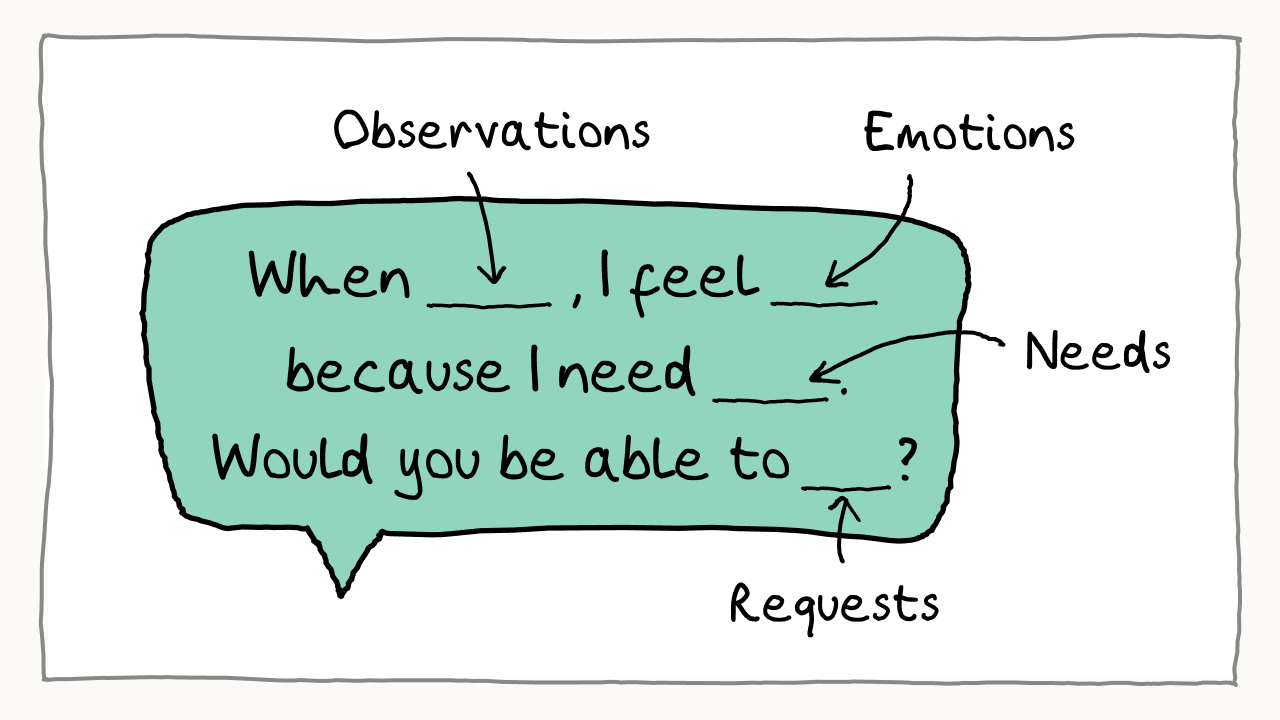
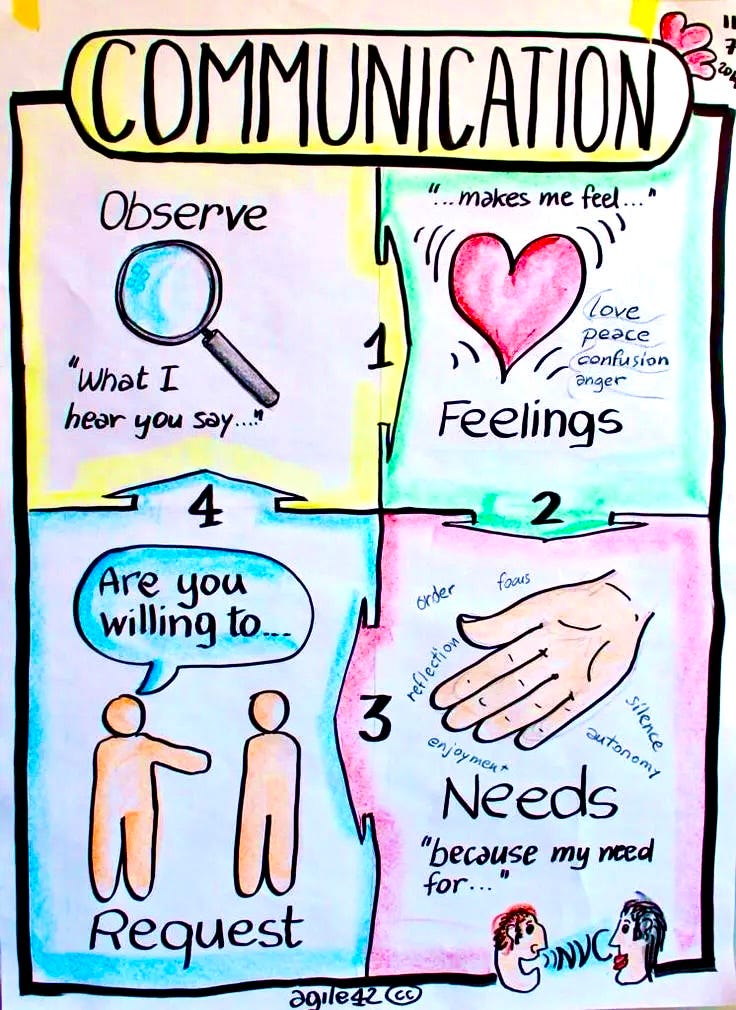
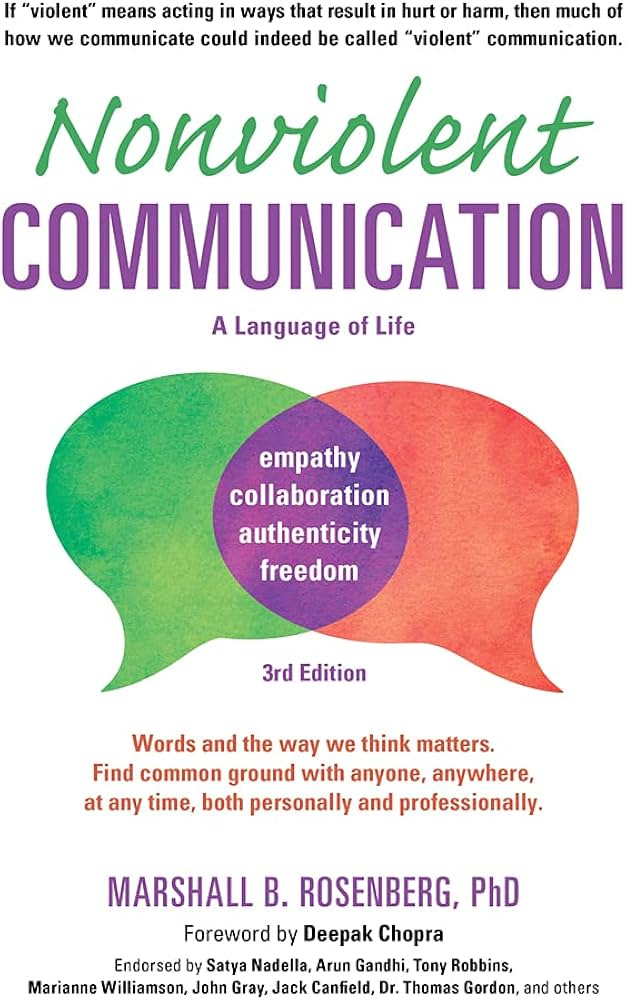

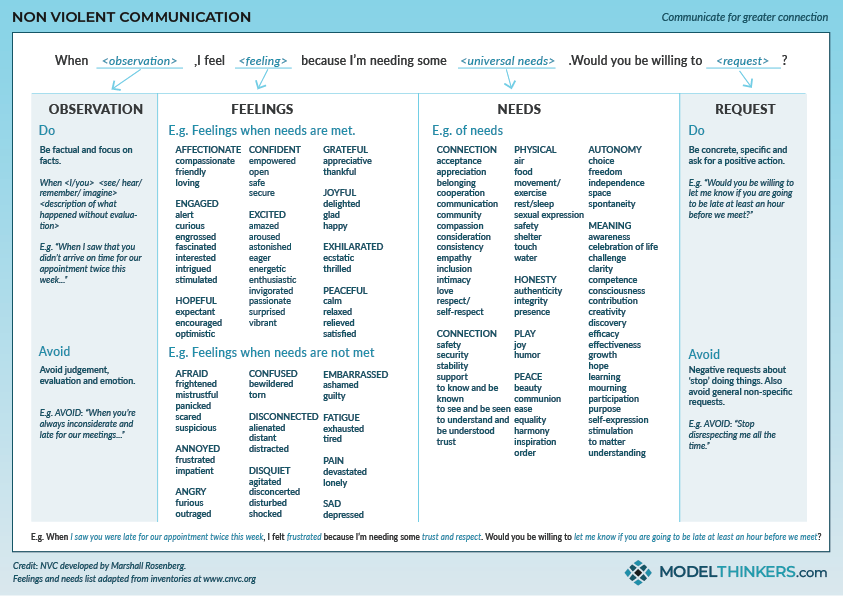

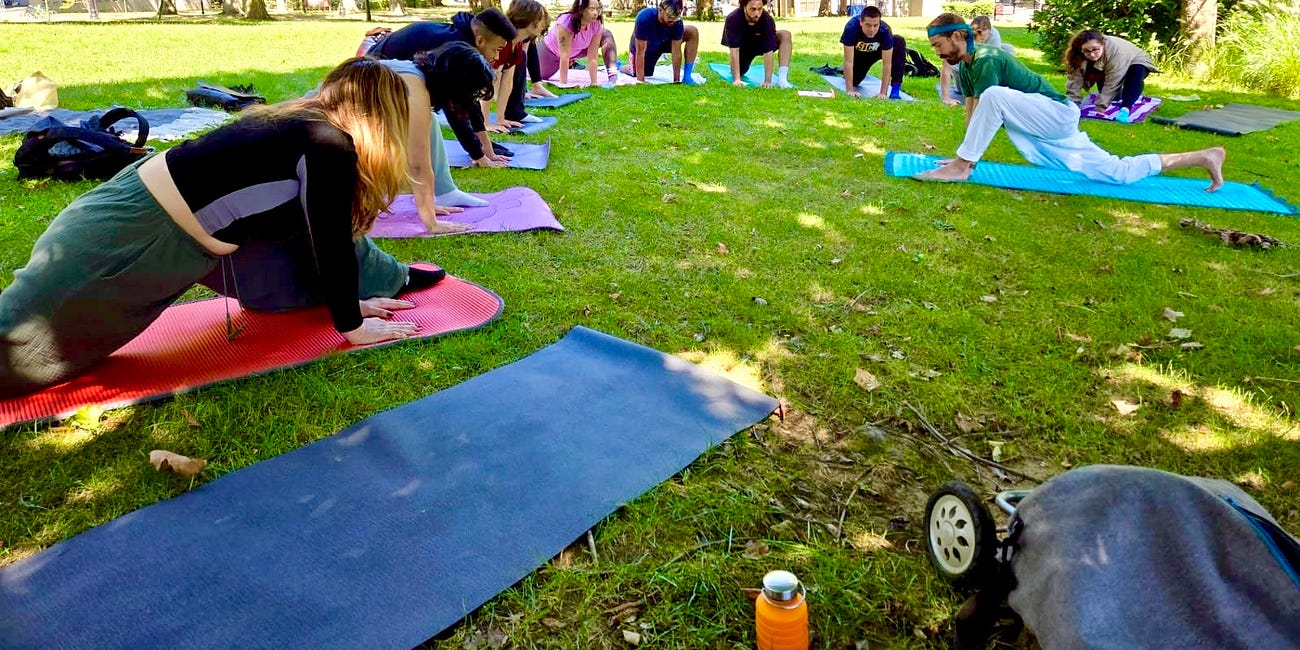

Beautiful, enrolling ;-), helpful post. Thank you Shine!